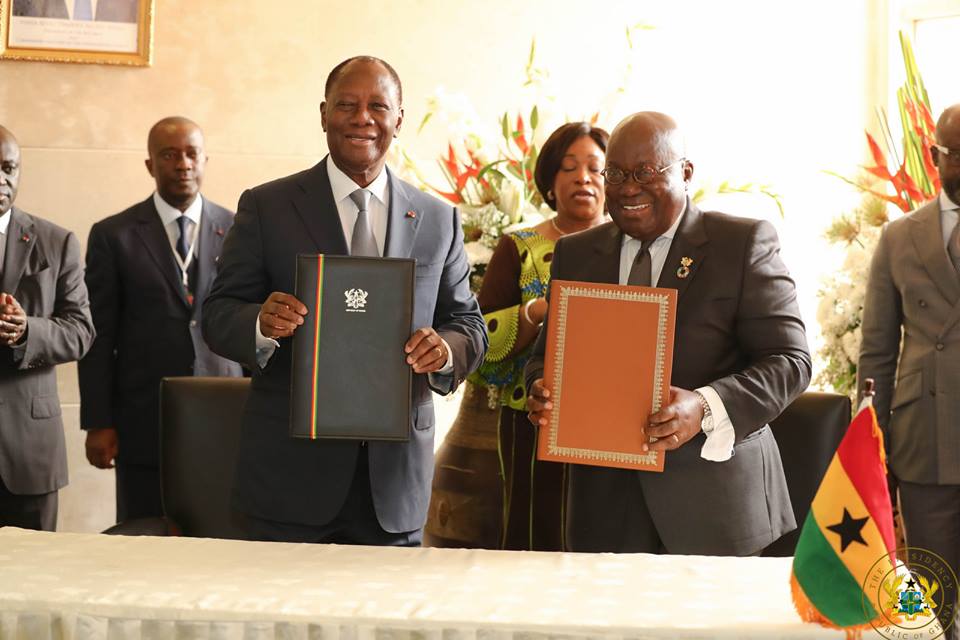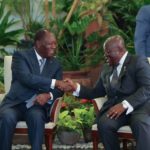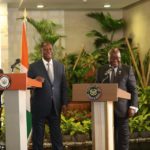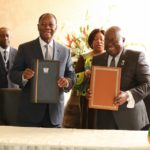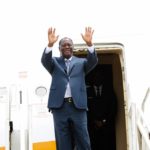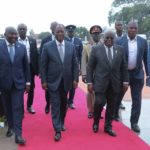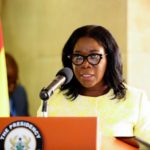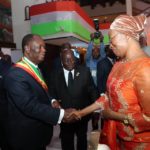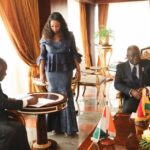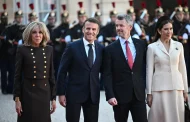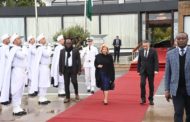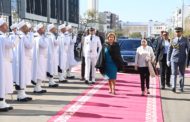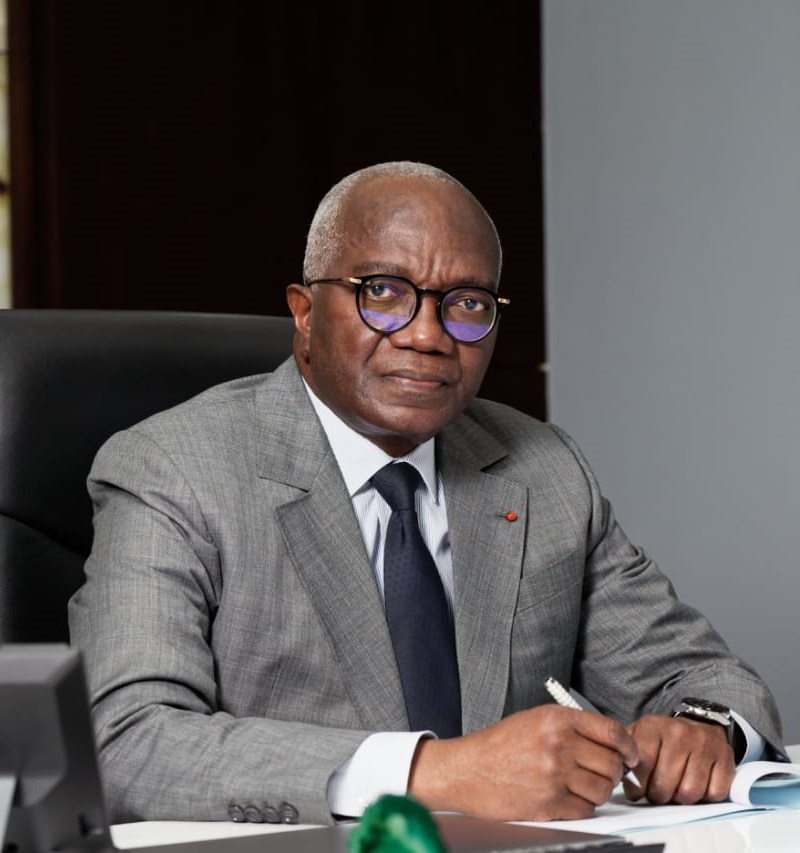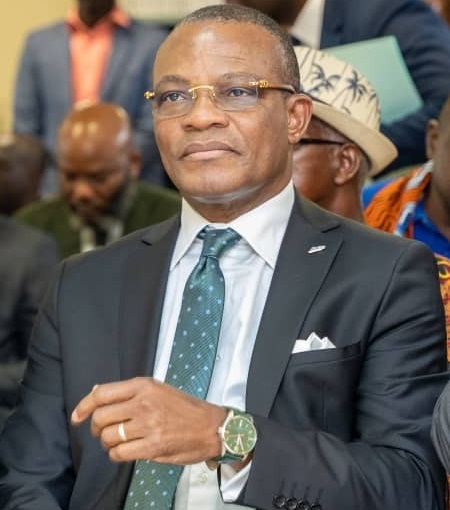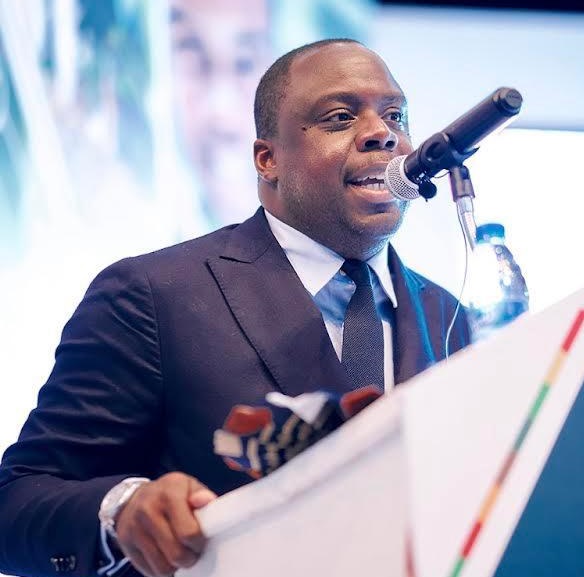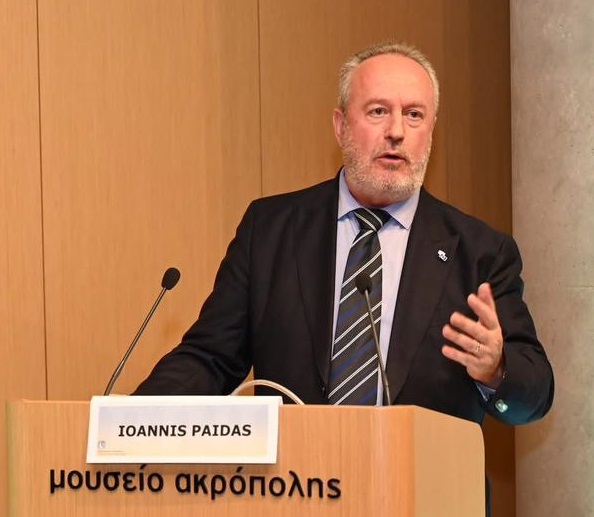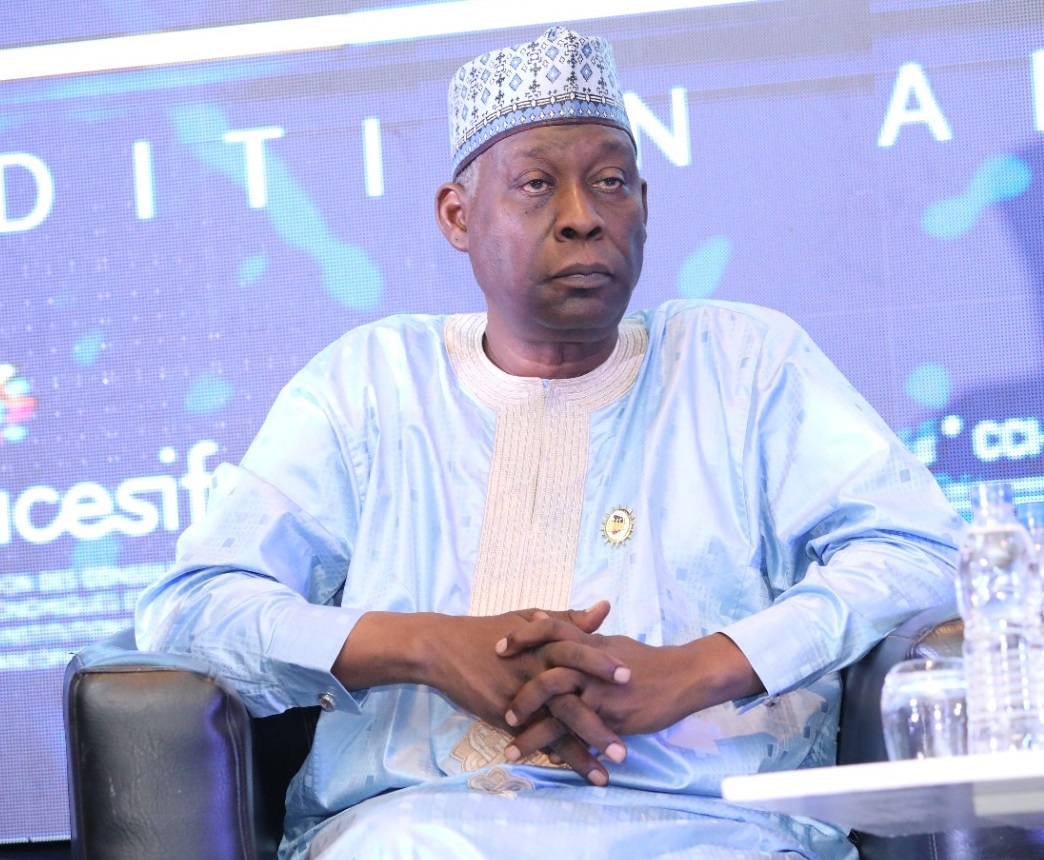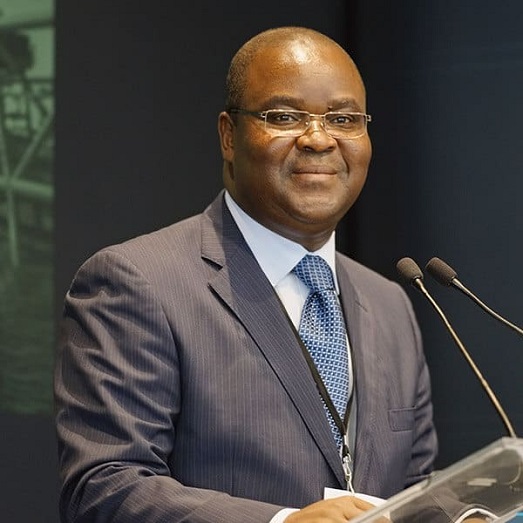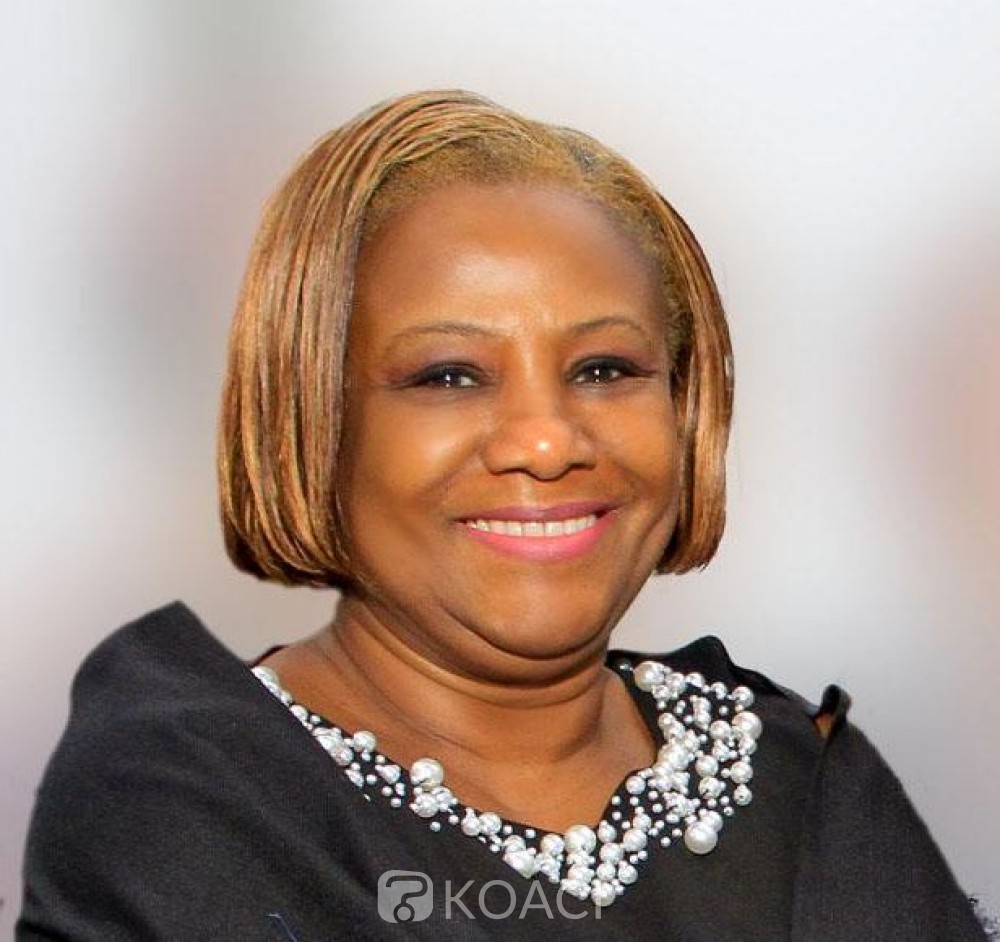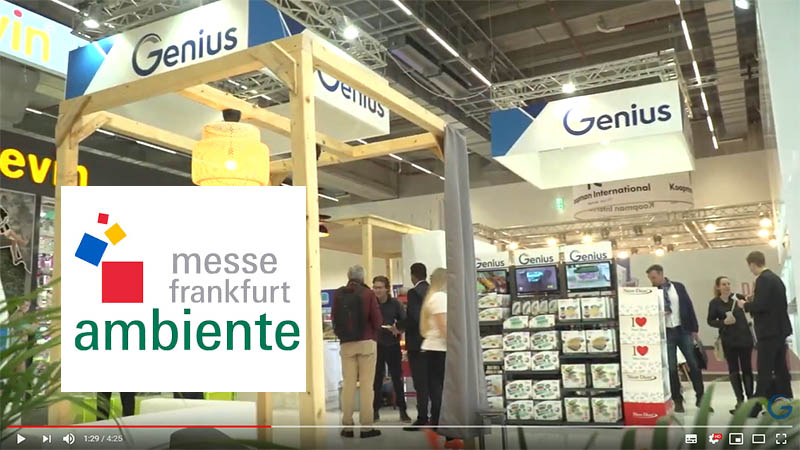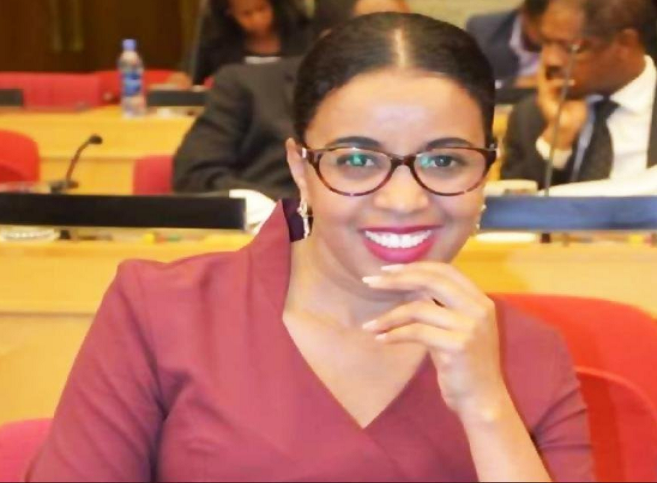Ghana and Cote d’Ivoire have agreed to set up a strategic co-operation framework, and have signed a Strategic Partnership Agreement (SAP), to that end, which will give new momentum to Ivorian-Ghanaian co-operation.
This agreement covers the areas of Defence and Security; Cocoa and cashew economy and other strategic crops; Maritime cooperation; Mining, energy and environment; Transport; and Economic policies.
Signing the agreement on behalf of the Government and people of Ghana, the President of the Republic, Nana Addo Dankwa Akufo-Addo noted that “this Agreement will bind our two countries in even closer intimacy, and go beyond the conventional tools of co-operation, and, I am confident, will yield results of a historic and enduring nature for our two peoples.”
The signing of the Agreement was conducted at the Flagstaff House on Tuesday, 17th October, 2017, at the end of the 2-day visit to Ghana by the President of Cote d’Ivoire, Alassane Ouattara.
On Defence and Security, the two countries agreed to reinforce the relationship among the relevant agencies, to organise joint exercises and operations and to establish joint training programmes.
“In order effectively to fight terrorism, maritime piracy, cybercrime, human trafficking and narcotics, the illicit circulation of small arms and light weapons, and the spread of destabilizing acts from one territory to the other, the two Governments have decided to strengthen their cooperation in the field of information exchange and intelligence,” the agreement read.
In order to exercise better control over the international price of cocoa, the two Governments, through their respective cocoa institutions, namely the Coffee-Cocoa Board for Côte d’Ivoire and the Ghana Cocoa Board (COCOBOD) for Ghana, agreed to adopt common policies on the marketing, storage and processing and promoting local consumption of cocoa.
Additionally, Ghana and Cote d’Ivoire pledged to put in place a common strategy, including the need to converge towards a harmonised and consolidated price to be paid to farmers, to contribute to the eradication of smuggling of cocoa and cashew.
On Maritime Co-operation, the two Governments reaffirmed their commitment to abide strictly by and cooperate to implement the ruling of the Special Chamber of the International Tribunal for the Law of the Sea (ITLOS) delivered on 23rd September, 2017, in the dispute concerning the delimitation of the maritime boundary between Ghana and Côte d’Ivoire in the Atlantic Ocean.
In accordance with their commitment, the two Governments agreed to develop practical arrangements for the joint exploitation and management of trans-boundary oil and gas and other resources.
“They will also work to achieve stronger cooperation in the areas of oil research, hydrocarbon exploration, development and management, and sharing of information,” the agreement added further.
Taking into account their rich mining potential, Ghana and Cote d’Ivoire reiterated their commitment committed to strengthening their co-operation in the areas of mining, policies, increase in national participation and exchange of information, and capacity building.
“A specific emphasis shall be put on combatting the proliferation illegal small- scale mining with the view to eliminating its negative impact on the physical and social environment. Furthermore, cooperation should be strengthened as far as climate change and coastal erosion is concerned,” the statement added.
The two Governments also decided to strengthen their cooperation in the area of air, sea, rail and road transport. In the short term, they have agreed to speed up the Abidjan-Accra highway project.
In order to create a prosperous society, Ghana and Cote d’Ivoire pledged to increase the volume of trade between the two countries, and to create a stable inclusive economic environment, commit to execute the relevant instruments and take the necessary measures towards closer convergence of their economic policies.
To this end, a Conference of Heads of States shall be established within twelve (12) months of the signing of the Agreement, which will be responsible for guiding and promoting the implementation of the common strategic policies defined in this Agreement.
Additionally, a Joint Implementation and Monitoring Committee shall be established, consisting of the Ministers of Foreign Affairs and the Ministers of the two Governments in charge of the strategic areas defined in this Agreement. The Joint Committee shall be responsible for the implementation and monitoring of the decisions of the Conference.


